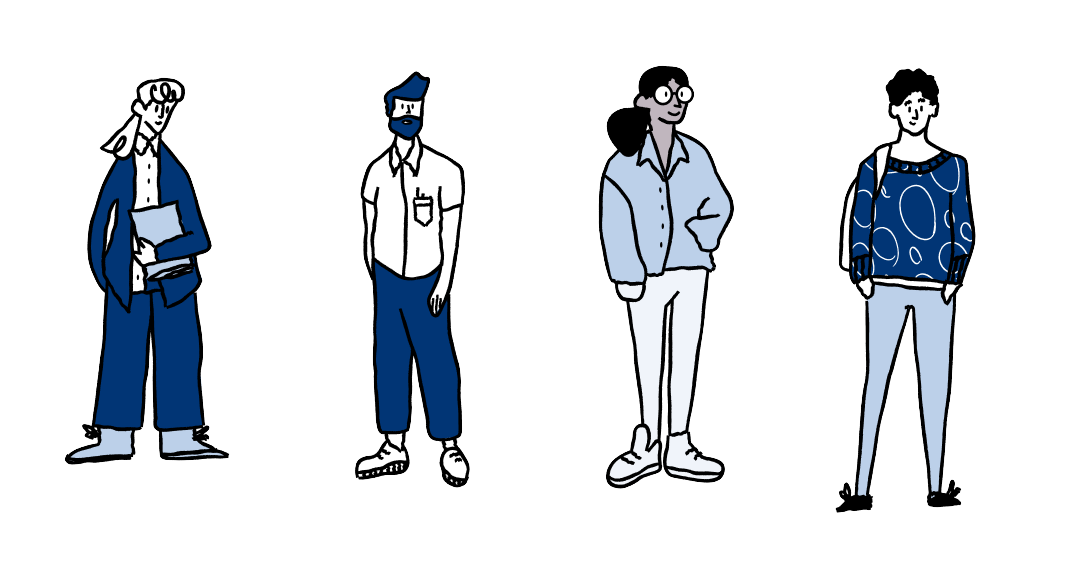Building healthy relationships for the long term
The connection we feel from our relationships is important for our mental and physical wellbeing.
This is why we want to make sure we’re working on building healthy relationships and letting go of those that are causing us unhappiness or harm.
Movies and social media can make us think that a healthy and happy relationship happens easily and doesn’t need to be worked on. In reality, healthy and happy relationships are the ones where both people continuously put in the effort to make it work.
This process can take a lot of time, effort, patience, and emotional commitment. In some cases, it may also require you to have difficult conversations and make tough decisions over and over again.
“Just because a relationship experiences problems from time to time, doesn’t mean it isn’t healthy. ”
Conflict is normal and a key way we can learn and grow together. It’s when problems go on for too long that things can become unhealthy.
If you suspect you’re in an unhealthy relationship, you can learn about common relationship problems or read about some of the signs to look for.
If you feel like you’re in a healthy relationship but would like some help in making it better, have a look at our tips below.
On this page, you’ll find:
- Tips for building healthy relationships
- Tips for moving on after a relationship ends
- How to learn and grow from past relationships.
Scroll down to learn more.
Tips for building healthy relationships
- Look after yourself first
Remember, the most important relationship you’ll ever have is the one you have with yourself. When you’re not feeling good about yourself or the world around you, it can be difficult to show up for someone else.
It doesn’t matter if you’re just starting a relationship, working through a relationship problem, or thinking about ending a relationship, you deserve to prioritise yourself.
This means:
- Prioritising self-care
- Protecting your self-esteem
- Setting and maintaining boundaries
- Asking for help if things become too much.
- Practise your communication style
- Be open to difficult conversations
- Reflect on the positives
If you’re a man using abuse or violence in relationships and are here because you want to explore options for changing your behaviour, you may want to try the Better Man online program. It's free, self-led, and a positive first step.
Moving on after a relationship ends
It doesn’t matter if you had a relationship for 6 months or 60 years, when it ends it can feel like the hardest thing you’ve ever faced.
In some cases, when we lose a relationship, we can lose more than the connection with that person.
We can also lose things like our:
- Identity
- Social life
- Home
- Financial security
- Self-esteem
- Time with children.
Even if the relationship was unhealthy, it’s normal to feel a range of conflicting emotions when it ends. You might be relieved and feel ‘free’, while also feeling angry, sad, and like you’re grieving.
Grief, as all-consuming and uncomfortable as it can be, is a way to accept the closing of one chapter, be open to the next, and make sense of your new world.
“Grieving your relationship and the future you thought you were going to have is a healthy part of the healing process.”
If you don’t give yourself permission to take the time needed to heal and move forward, you may run the risk of ignoring or numbing your pain.
- This can look like:
- Turning to drugs and alcohol or self-harming
- Distracting yourself with a new relationship
- Putting all of your energy into school or work
- Going back to an unhealthy relationship.
It can be hard to believe that you’ll ever feel better, but a combination of time, self-care, and seeking support will help you move forward and come out the other side.
When you’re hurting, it can impact your self-esteem and be difficult to think about what to do to feel better in the moment.
Having a personalised self-care box can be helpful. You can also speak to your GP about getting a Mental Health Treatment Plan if you feel like it’s not getting any better.
Thinking about future relationships
If you’re feeling strong enough, reflecting on past relationships can be a helpful way to learn, grow, and prepare for new relationships.
Reflecting can look different for everyone, but a few things you can consider are:
It can be helpful to think about:
- What worked in the relationship
- What didn’t work in the relationship
- What your needs are
- What your boundaries are
- How you best handle and respond to conflict.
As much as we need to feel connected to others, rushing into a new intimate relationship or staying in an unhealthy one is not as important as your emotional safety and wellbeing.
Remember, you can always build social connections that aren’t intimate.
If that doesn’t feel like an option for you at the moment, and you are feeling like you want to connect with someone, Lifeline is here.
Click here to download, save, or print our relationships fact sheet.










